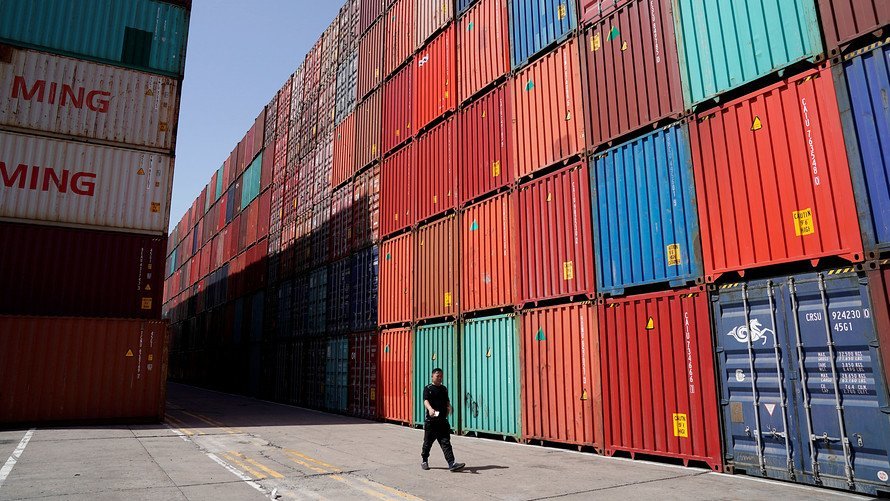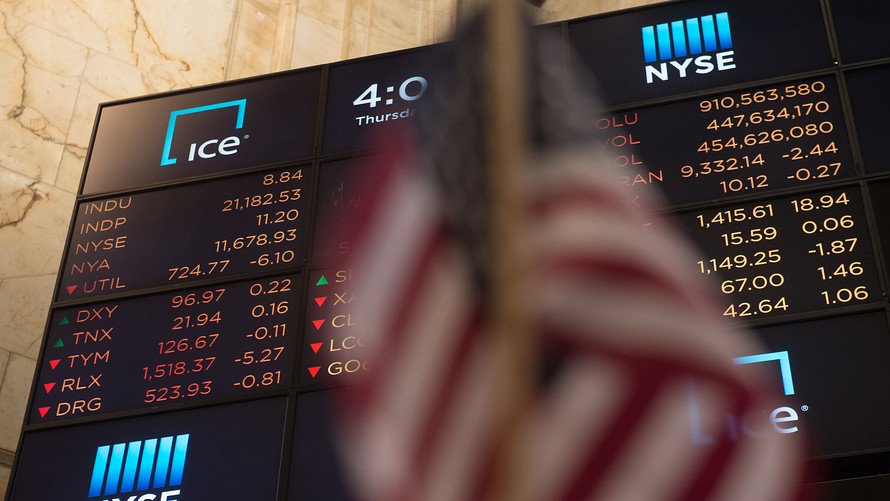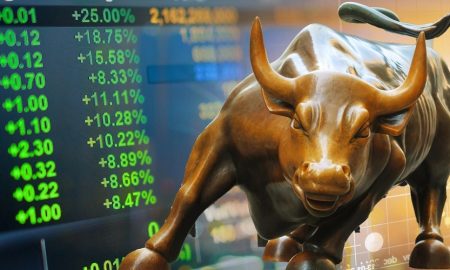
Trade Uncertainty Reportedly Causes European Stock Markets to Finish Lower

Europeans Markets Finish Lower
Monday afternoon had European markets closing lower howbeit by a slightly slim margin. The day trading witnessed a lot of fluctuations above the flat line and below it at other times. The fluctuation was due to concerns on the part of investors about world trade in general.
On that same day, the pan-European Stoxx 600 finished 0.2% lower. Most of the major stock exchanges and sectors finished in the negative territory.
Sector-wise, the basic resources stocks fell the most on Monday as it closed the trading day 1.4% lower due to the intense trade uncertainty. The chemical stocks also ranked among the worst performers. The shares closed roughly 1% lower in the emergence of news of merger and acquisition. Notwithstanding the flat finishing, it recouped some of its afternoon losses.
Due to the news that the U.S. Federal Trade Commission could make further concession demands in the German industrial gases company’s merger with EuropeanPraxair, Linde fell lowest in the sector. Its shares closed 7.5% lower.
Individually, the stocks of IWG, the U.K. office provider, slumped with about 20% based on reports that the company had left its acquisition discussions with three other interested companies on Monday.
HSBC also recorded earnings that beat its pre-tax profit went higher by 4.58% year on year and was at $10.722billion the first half of this year. It shares closed 1% lower even though it solidly traded at the level all through the afternoon. Unicredit, the Italian lender, is reportedly due to report its results for the second quarter on Monday. Sources claimed that the industrial orders of Germany and also PMI data were scheduled for release as well as British car sales and eurozone retail PMI figures

The stocks of IWG, U.K. office provider slumped with about 20% based on reports that the company had left its mergers discussions with three other interested companies on Monday.
According to IG, an online broker, Britain’s FTSE 100 reportedly traded at 7,681 which was 16 points higher, and the GermanDAX rose to 12,650 by 31 points. The online broker further noted that FrenchCAC 40 rose by 16 points and was at 5,498 while Italy’s FTSE MIB went up with 86 points and was at 21,620.
US stocks fall
In the US, the Dow Jones Industrial Average fell on Monday. The slip in the index was reportedly due to Intel shares fall which caused the index to go lower as it dropped by 1.1%. The S&P 500 surged by 0.1%, and utilities and consumer discretionary reportedly led the market. The Nasdaq index that has lots of tech stocks rose by 0.2% as Facebook climbed by roughly 2%.

The slip in the Dow Jones Industrial Average was reportedly due to Intel shares fall which caused the index to go lower and dropped by 1.1%
Investors have continued to pay close attention to the trade wars between the US and its trade partners. An official newspaper of the Chinese government spoke on Trump’s role in the rising protectionism war between the two largest economies in the world. China on Friday stated that it was planning its retaliation against the US tariffs as it was targeting about $60 billion worth of US goods.
In Asia, the equity markets were in black as traders were still getting used to the People Bank of China decision to stabilize the country currency. The Central Bank of China fixed the yuan daily midpoint rate at about $6.8513 which was the weakest it had been since last year May. The yuan traded slightly below that flat line as it was at $6.8275 during the early morning trade.
Brexit Talks
Sources claim that the European alies of America would probably be nervous on Monday as Washington plans to re-impose the overturned sanctions on Iran. The sanctions were previously reversed by the 2015 historic nuclear deal. These re-imposition of duties would reportedly affect Iranian products such as metals and automobiles.
On the most recent development on Brexit, Liam Fox, the UK Trade Secretary stated that the stubbornness on the part of the European Union was increasing the likelihood of a no-deal withdrawal. The trade secretary highlighted that the chances there would be a no-deal Brexit was 60-40 even though both parties noted that they were keen on finalizing the terms on which the UK would depart in March next year.
While indicating the consequences which a failure to make a deal would have on member states, Fox noted that it was left to EU27 to decide whether they intended to maintain the ideological purity of the EU commissions even at the expense of the members’ economies. It is pertinent to note that a no-deal Brexit had the likelihood of causing harrowing effects for both the European Union and Britain’s economies. The no-deal would cause both sides to severe ties sharply and rule out any provisions to maintain smooth trading between both parties.
More in Business
-
`
Brad Pitt’s ‘Semi-Retirement’ Plans
Brad Pitt, known worldwide for his Academy Award-winning acting and top-notch production skills, is not just a Hollywood sensation; he’s a...
December 9, 2023 -
`
Streaming Giant Netflix Faces Yet Another Challenge
In the ever-evolving landscape of streaming entertainment, Netflix, once the unchallenged king of digital content, now faces a complex puzzle beyond...
December 1, 2023 -
`
Signs You Should Quit Your Current Job & Move On
You Don’t Feel Comfortable at Work Imagine spending the majority of your waking hours in a place where you feel uneasy,...
November 20, 2023 -
`
How to Adjust and Renew Your Portfolio
Investing in the financial world is like navigating an ever-changing landscape—constantly evolving, always shifting. The key to staying on track? Regularly...
November 18, 2023 -
`
Dr. Dre’s Divorce With Nicole Young: A Closer Look
When the beats of old-school hip-hop start bumping, Dr. Dre’s name reverberates in fans’ minds worldwide. Born as Andre Young, this...
November 12, 2023 -
`
Why Branded Content Is the Best Way to Connect With Your Audience
Have you ever found yourself deep in a compelling article or engrossed in a video series, only to later discover that...
November 5, 2023 -
`
Why the Gender Pay Gap Could Be Getting Worse | New Research Findings
At a time when women are making significant strides in various professional arenas, a new report throws light on a trend...
October 28, 2023 -
`
What Is a Bull Market and How Can Investors Benefit From One?
In finance, the term “bull market” is frequently used to describe a period of optimism, rising asset prices, and investor confidence....
October 19, 2023 -
`
A-List Power Couples Where the Women Make More Money
In an era of shifting gender roles and evolving definitions of success, it’s increasingly common to find celebrity couples where the...
October 15, 2023















You must be logged in to post a comment Login